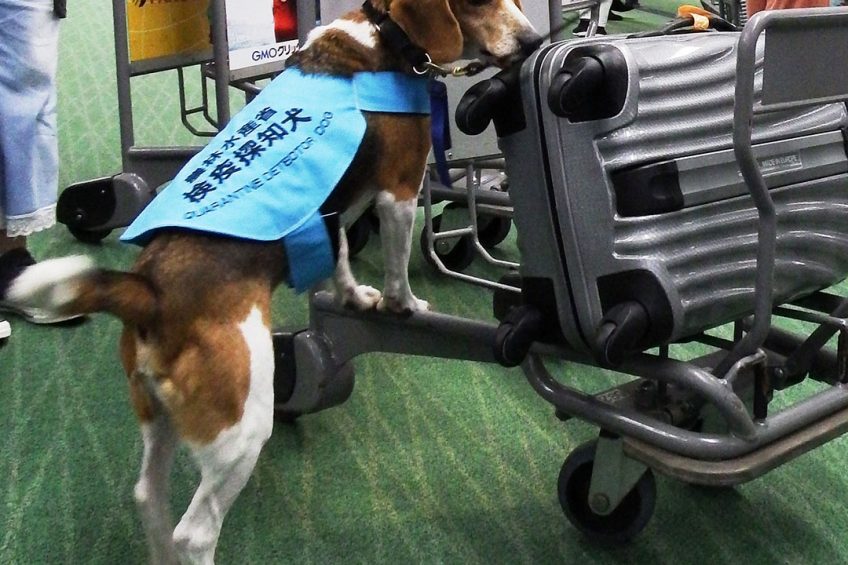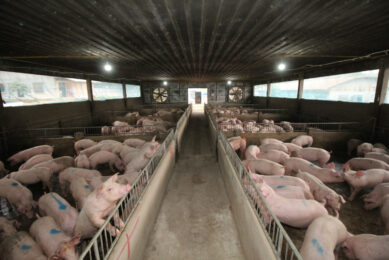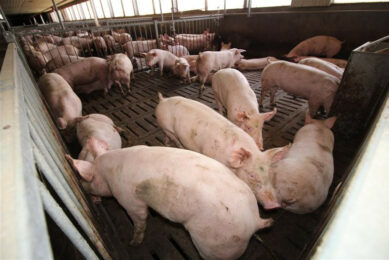ASF entry prevention – update from North America

Canada is collectively trying to keep African Swine Fever outbreaks out of the country. Measures involve the Canadian Food Inspection Agency (CFIA), the pork industry, Canadian Border Service Agency (CSBA) and government officials.
Ramped-up prevention measures to keep African Swine Fever out of Canada are currently being described as unprecedented. Measures extend for instance to:
- 24 more sniffer dog teams to be added over the next 5 years (for an eventual total of 39) to check airline passengers for smuggled pork and greater diligence in checking for hidden imports of bulk pork.
- CFIA media stated, “An Executive Management Board – a collaboration between the federal and provincial governments and industry – was formed and spearheads the pan-Canadian Action Plan on ASF, which outlines the strategy on Canada’s prevention and preparedness activities. Simulation exercises have been carried out to ensure a coordinated approach is adopted in the event of an ASF outbreak in Canada.”
- In addition, import controls pertinent to ASF have been re-evaluated, leading to new measures for importing plant-based feed ingredients.
Diligent until ASF is under control
In the view of Dr Egan Brockhoff, a swine vet and partner at Prairie Swine Health Services in Red Deer, AB, these unprecedented efforts to prevent ASF entry into Canada will need to continue for the foreseeable future.
He said, “We will have to be very diligent until the disease is under global control. Biosecurity plays a critical role in that, and there is still unfortunately a long way to go to educate people around the world about how the virus is spread. A change in attitude is needed with regard to biosecurity protocols. There is also the wild boar problem. There are large populations in Europe and the ASF virus loves that population.”

Track the movement of African Swine Fever
For everything you need to know about ASF, from the latest outbreaks to controls stay up to-date…
Smuggling pork: Attitude change is needed
An attitude change is also needed, said Brockhoff, about smuggling pork products. While countries such as Canada, the US, Australia and Japan have been diligent for decades in searching for and seizing illegal products at airports and ports, there are media reports that all 4 countries have found them in recent months. More importantly, Australia and Japan have found ASF virus in some of what they have seized.
Canada Border Services Agency (CBSA) reported that in 2019, almost 600 travellers entering Canada failed to declare pork products; 90 received a written warning and 506 a CAN$ 1,300 penalty. In addition, 167 travellers failed to properly import pork products, and 132 of those got an CAN$ 800 penalty.

ASF in the Americas is no science-fiction at all
Protection at the US borders
In the United States, Customs and Border Protection (CBP) cannot provide ASF-specific data, but can say that in 2019, it intercepted over 1.75 million quarantined materials throughout all ports of entry, with about 25% being meat products.
CBP gave out 8,745 agriculture-related penalties in 2019 and has seen no change in the number of undeclared products related to ASF. In terms of current action, CBP will increase canine enforcement teams by 65 over the next 2-3 years, says a spokesperson, for “detecting foreign animal diseases such as ASF as well as exotic plant pests.”
Raising public awareness for ASF
Back to Canada – there is also a lot being done to raise public awareness:
- CBSA has ramped up its internal communications and with partner organisations such as airport authorities, said CBSA senior spokesperson Rebecca Purdy. “Externally, the Agency is amplifying the CFIA’s communications through web messaging, social media, and other more traditional means of communications such as posters.”
- CFIA Media added that the Don’t Pack Pork campaign is also being brought to the public with in-flight messaging.

Read also: Americas co-ordinate the prevention of ASF
Zoning and vaccine initiatives
On the international trade front, CFIA has confirmed zoning arrangements with the US and the EU and has engaged Japan to allow for safe trade in the event of an ASF outbreak.
Last but not least, the CFIA is also supporting research towards ASF prevention. “As announced in January 2020, the University of Saskatchewan’s Vaccine and Infectious Disease Organization-International Vaccine Centre (VIDO-InterVac),” says CFIA Media, “[has become] the first non-government facility in Canada to work with the ASF virus with the aim of developing and testing vaccines and antivirals for the virus.”











